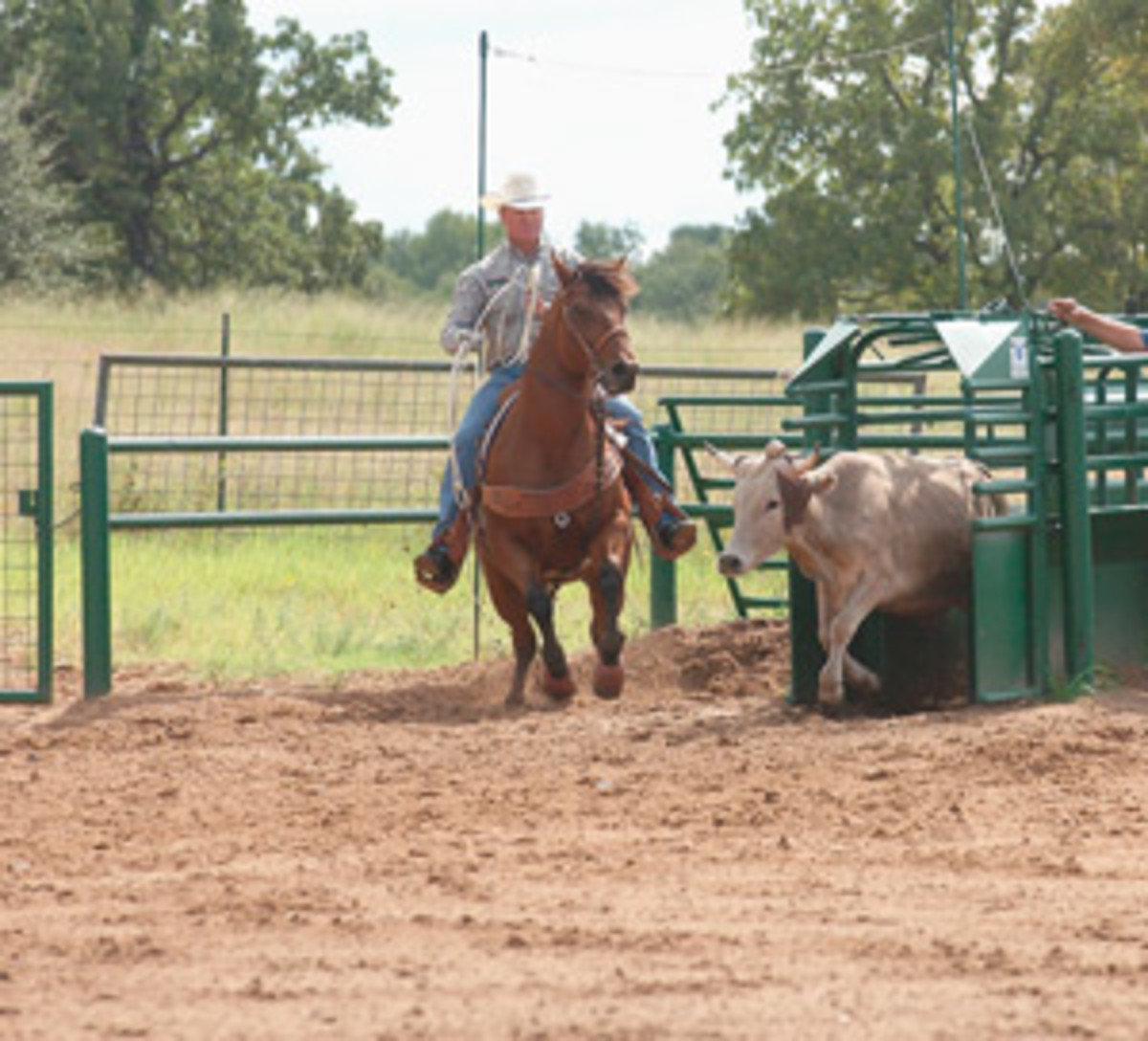Balance is the whole key to being able to ride well and get good position. You need to be able to stay centered and balanced. There are so many different parts of roping going on all at one time when you’re making a run, from the things your horse has to do to the way you ride him to maneuver him into position when the steer turns back. There are also the things you need to do yourself, pertaining to your swing, timing, delivery, slack and getting to the horn. All of that revolves around your ability to balance yourself properly in the midst of it all.
[SHOP: The Champ’s Cactus Heel Ropes]
(As an Amazon Associate, we earn from qualifying purchases made through affiliate links.)

I’ve seen thousands and thousands of ropers over the years, and there are so many contrasting styles and ways of maneuvering, swinging and throwing. Occasionally, you see somebody who ropes really well that might look a little bit awkward in the saddle. For the most part, a good roper who learns to catch consistently is someone who really sits a horse right and keeps good and proper balance.
Those people stay right in the middle of the horse, their upper body is stationary and their head is straight up and down, and upright. It looks as if the horse is
doing all the movement, and they’re just sitting up there nice and easy.
There are all shapes and sizes of people. Everyone is built differently. You have people who are short and thick, heavy-muscled, large upper-bodied, skinny and streamlined, and all in-between. If you grew up riding, balance comes naturally. You learn what works for your body type.
[MORE: Get Clay O’Brien Cooper’s Gear]
Relentless All-Around Sport Boots by Cactus Gear
Good balance is hard to learn for people who started at a later age. When you start later in the game it can feel totally unnatural, and can be a real factor that you battle. You have to put in the time to learn the movements needed to counter what your horse does and move with him. You’re really going to have to concentrate on this aspect.
Part of good balance is learning to stabilize your upper body with your legs. I use my legs a lot when I ride, and the contact against the saddle and horse to keep my balance. As a result of that, my stirrup length, the swells of my saddle and the size of my seat really come into play, because I’m using all those things
in my legs to help me maintain good, comfortable balance in the saddle.
Without good balance, you’re really hindered. If it’s hard to stay in the middle of your horse, it’s hard to maneuver and control him. Heelers have to control their horse and set up their shot at the same time. It’s just so much easier if you’re sitting right in the middle of your horse with good balance while you’re performing those functions.
Each person has to find what works for him. Experiment with the length of your stirrups, and find your comfort zone as far as how much you stand up or sit down.
Seat size is big. Like a lot of young people, I strapped the first saddle I won on my horse because I was so proud of it. But I was just a little kid, and the saddle probably had a 16-inch seat in it. I didn’t know the difference. I kept strapping on saddle after saddle. Now I know that was a mistake, and a disadvantage.
It was 1985, when Jake and I got our first saddle endorsement, and that was the first time I got a seat that fit. I got a 14.5-inch seat, and was absolutely amazed at the difference it made in my riding and roping. I wasn’t rocking back and forth in the saddle anymore. That’s all I’ve ridden since.
After finding that out, I took some of my trophy saddles to a saddle maker and had him shorten up the seats so they’d fit me. They thickened the pad in the back of the seat, and they fit. For $100, you can ride a saddle that fits you.
Another thing that really bugs me about a saddle is if I climb on one that doesn’t have big enough swells. I learned to ride with my thigh up underneath that swell, and learned to use those swells to keep my upper-body balance. Without those swells, I don’t feel like I have anything to hold on to. I really use that left swell to lock into and keep my upper-body balance, especially in a rodeo run, where you’re going 30 miles an hour, then making that sharp cut.
One of the most common problems that I encounter at roping schools is people leaning over forward too much and really leaning down to deliver their loop. I get to see the top 50 guys in the world heel every day, and they all sit up good. They don’t lean over with their throw, unless they’re totally out of position and have to. They sit up and keep their horse underneath them. That allows them to get their ropes in the proper angle to set up their delivery, and it takes good balance and riding correctly.










